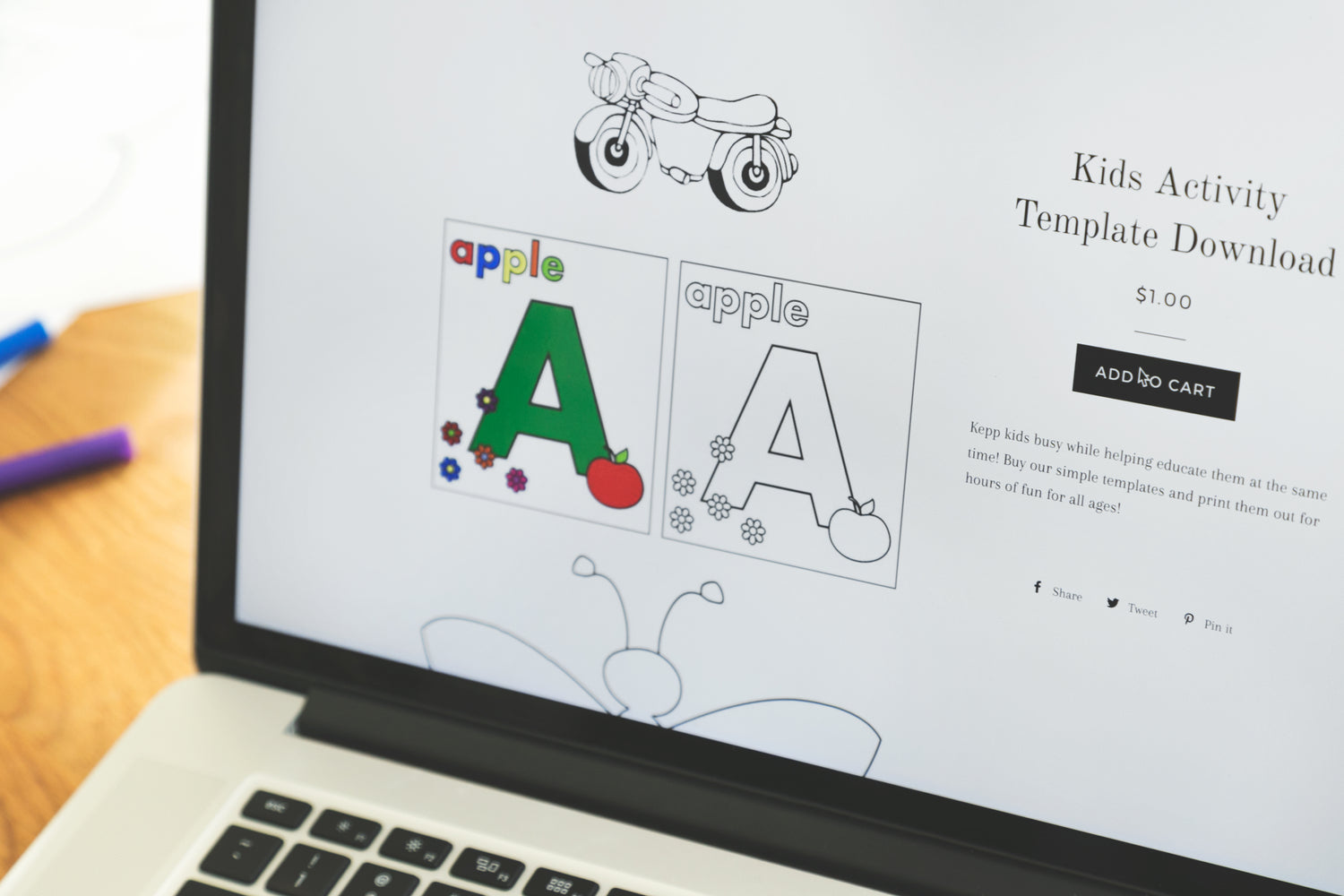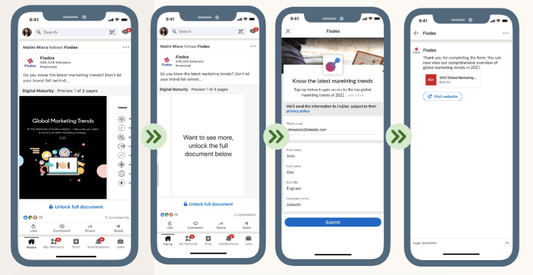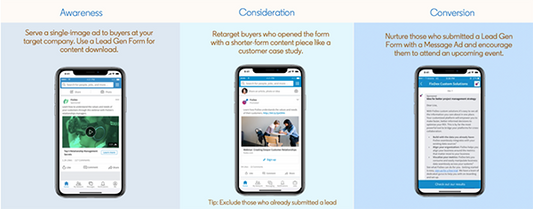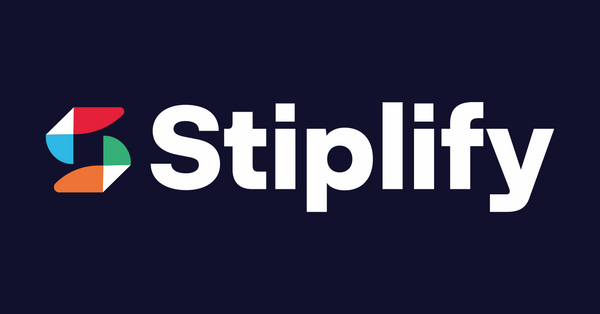
Understanding the Digital Marketing Landscape
Digital marketing is a vast and dynamic field encompassing various roles and specializations. Before we delve into specific career paths, let's establish a foundation.
What is Digital Marketing?
Digital marketing is the promotion of products or services using digital channels to reach and convert target audiences.
It involves a strategic approach to leveraging online platforms and technologies to achieve marketing objectives.
Key Components of Digital Marketing:
- Search Engine Optimization (SEO): Optimizing website content and structure to improve search engine rankings.
- Pay-Per-Click (PPC) Advertising: Creating and managing paid ads on search engines and other platforms.
- Content Marketing: Creating valuable content to attract and retain customers.
- Social Media Marketing: Utilizing social media platforms to engage with the target audience.
- Email Marketing: Building and nurturing relationships with customers through email.
- Analytics: Measuring and analyzing website traffic and marketing performance.
Apply for Digital Marketing Program
Marketing Training, Consultation with Job Assistance provided by Stiplify.
Core Digital Marketing Career Paths

Digital Marketing Career Paths
Search Engine Optimization (SEO) Specialist
Role: Optimizing websites to improve search engine rankings.
Responsibilities: Keyword research, on-page optimization, link building, technical SEO, and content optimization.
Potential Career Progression: SEO Manager, Head of SEO, Digital Marketing Manager.
Digital Marketing Career Paths
Pay-Per-Click (PPC) Advertising Specialist
Role: Managing paid advertising campaigns on search engines and social media platforms.
Responsibilities: Keyword research, ad creation, bid management, campaign optimization, and performance analysis.
Potential Career Progression: PPC Manager, Digital Marketing Manager, Head of Paid Media.

Digital Marketing Career Paths
Content Marketing Manager
Role: Developing and implementing a content strategy to attract and engage the target audience.
Responsibilities: Content creation, content distribution, content promotion, content analysis, and content optimization.
Potential Career Progression: Head of Content, Digital Marketing Director, Chief Content Officer.

Digital Marketing Career Paths
Social Media Manager
Role: Managing a brand's social media presence and engaging with the audience.
Responsibilities: Social media strategy, content creation, community management, social media advertising, and analytics.
Potential Career Progression: Social Media Director, Digital Marketing Manager, Influencer Marketing Manager.

Digital Marketing Career Paths
Email Marketing Specialist
Role: Creating and managing email campaigns to nurture leads and drive conversions.
Responsibilities: Email list building, email campaign creation, email design, email automation, and email performance analysis.
Potential Career Progression: Email Marketing Manager, Digital Marketing Manager, CRM Manager.

Digital Marketing Career Paths
Digital Marketing Analyst
Role: Analyzing website and marketing data to identify trends and opportunities.
Responsibilities: Data collection, data analysis, reporting, and data visualization.
Potential Career Progression: Data Analyst, Marketing Analytics Manager, Digital Marketing Manager.
Hybrid Roles and Career Paths
-
Digital Marketing Manager:
Oversees all aspects of digital marketing campaigns.
-
Growth Hacker:
Focuses on rapid user acquisition and growth through data-driven experimentation.
-
Influencer Marketing Manager:
Manages relationships with influencers to promote products or services.
-
E-commerce Marketing Manager:
Drives online sales through various digital marketing channels.
Join Digital Marketing Professional Program
Digital Marketing Career FAQ
What is the best way to break into a digital marketing career?
Gaining practical experience through internships, freelance work, or personal projects is crucial. Building a strong online portfolio and continuously learning about industry trends can also help.
What are the most in-demand digital marketing skills?
SEO, PPC, content marketing, social media marketing, email marketing, and data analytics are highly sought-after skills.
How important is a degree for a digital marketing career?
While a degree can be beneficial, practical experience and a strong skill set are often more valued by employers. Many professionals in digital marketing have self-taught or learned through online courses.
What is the salary range for digital marketing professionals?
Salaries vary widely based on experience, location, specialization, and company size. Entry-level positions typically offer lower salaries, while experienced professionals can command higher compensation.
What’s It Like to Have a Career in Digital Marketing?
A career in digital marketing can be dynamic and rewarding! You get to work with creative campaigns, analyze data, and constantly learn about new tools and trends. It's ideal for problem solvers and those who love a mix of creativity and strategy.
What Are the Different Types of Careers in Digital Marketing?
Digital marketing has a variety of career paths, including social media management, content marketing, SEO, PPC (pay-per-click), email marketing, and even roles like data analysis and marketing automation. The possibilities are vast!
What is SEO (Search Engine Optimization)?
SEO is the practice of improving your website’s visibility on search engines like Google. It involves optimizing your website’s content, structure, and technical elements so that your site ranks higher for relevant search queries, helping you attract more organic traffic.
What is PPC (Pay-Per-Click) Advertising?
PPC is a type of digital advertising where you pay each time someone clicks on your ad. Platforms like Google Ads and Facebook Ads use PPC models. It’s a great way to drive traffic quickly, but it requires careful targeting to get a good ROI.
What Are Typical Salaries in Digital Marketing in India?
In India, digital marketing salaries vary based on experience and expertise. Entry-level roles can start at ₹3-5 lakhs per year, while experienced professionals can earn ₹10-15 lakhs annually. For top roles in SEO, PPC, or digital strategy, salaries can go even higher.
What Are Typical Salaries in Digital Marketing Abroad?
Abroad, digital marketing salaries tend to be higher. For example, in the US, an entry-level digital marketer can expect around $45,000-$50,000 per year, while experienced professionals can earn upwards of $100,000 annually, especially in specialized fields like SEO or PPC.
What’s Happening with AI in Marketing?
AI is transforming digital marketing! From personalized recommendations to chatbots and automated content creation, AI is making marketing smarter and more efficient. It helps brands better understand their audience and deliver highly targeted messages.
How to Make a Career in Digital Marketing?
Start by learning the basics of SEO, content marketing, social media, and PPC. Take online courses or get an internship to gain practical experience. Build your portfolio with small projects, and most importantly—keep learning as the field is always evolving.
Can Someone Start a Career in Digital Marketing Right After College or School?
Absolutely! Digital marketing doesn’t always require a degree. With a passion for learning and some hands-on experience, you can start a career right after school or college. Many successful marketers got started with internships, freelancing, or even their own projects.
Is Digital Marketing a Future-Proof Career?
Digital marketing is definitely future-proof. As more businesses go online and technology advances, the demand for skilled digital marketers will only grow. Whether it's SEO, social media, or AI-powered marketing, there's a long-term career potential here.
How to Choose the Right Marketing Coaching Institute?
When choosing a marketing coaching institute, make sure to check the credentials of the instructors, the curriculum, and whether the course includes practical experience. Look for student testimonials and check if they offer career support or internships.
What is Content Marketing?
Content marketing is all about creating and sharing valuable content to attract and engage your audience. This could be blogs, videos, podcasts, or even social media posts. It’s an essential strategy for building brand trust and driving long-term traffic.
Why Is Social Media Marketing Important?
Social media marketing is crucial because it allows you to engage directly with your audience. Whether it's Instagram, LinkedIn, or Twitter, these platforms help businesses build relationships with their customers, increase brand visibility, and generate sales.
What’s the Difference Between Organic and Paid Marketing?
Organic marketing is about attracting traffic through free methods like SEO or social media engagement. Paid marketing, on the other hand, involves paying for ads, like Google Ads or Facebook Ads, to drive immediate traffic. Both are important in a balanced marketing strategy.
How Do You Know If Your Digital Marketing Efforts Are Working?
You measure success through metrics like traffic, conversions, engagement, and ROI. Tools like Google Analytics and social media insights can help you track these metrics. Always adjust your strategies based on what the data tells you.
What Are the Key Skills Needed for Digital Marketing?
Key skills for digital marketing include understanding SEO, content creation, social media strategy, data analysis, and paid advertising. Creativity, problem-solving, and staying updated with trends are also important for success.
Is Freelancing in Digital Marketing a Good Option?
Freelancing in digital marketing is a great option if you prefer flexibility and variety. You can work with multiple clients and choose projects that interest you. Plus, as the demand for digital marketing services grows, so does the opportunity for freelancers.
What’s the Role of a Digital Marketing Manager?
A Digital Marketing Manager oversees all marketing efforts for a company. They strategize and execute campaigns across different channels like SEO, PPC, social media, and email. They also analyze data to ensure campaigns are effective and optimize them for better results.
How Do I Get Started as a Freelance Digital Marketer?
To start as a freelance digital marketer, first build a portfolio. You can begin by working on small projects for friends or businesses in your network. Set up profiles on freelancing platforms like Upwork or Fiverr and offer your services. As you gain experience, raise your rates and expand your client base.
What Are the Benefits of Freelancing in Digital Marketing?
Freelancing in digital marketing offers many benefits—flexible work hours, the freedom to choose your clients, and the ability to work from anywhere. Plus, as a freelancer, you get to decide your income potential based on the number of clients and the rates you set.
How Do Freelance Digital Marketers Set Their Rates?
As a freelance digital marketer, setting your rates depends on your experience and the services you offer. You can charge hourly or project-based rates. Research what others in your niche charge, but always factor in your skill level and the value you're bringing to your clients
Do Freelance Digital Marketers Need a Website?
Yes, having a website as a freelancer is a must! It serves as your online portfolio, showcasing your skills, past work, and client testimonials. It’s an easy way for potential clients to learn about you and get in touch. Plus, it boosts your credibility.
How Do I Find Clients as a Freelance Digital Marketer?
Finding clients starts with networking. Use LinkedIn, social media, and freelance platforms to connect with potential clients. You can also reach out directly to businesses that might need your services. Word-of-mouth and referrals are powerful—always deliver great work and ask clients for recommendations.
Is Freelancing in Digital Marketing Profitable?
Yes, freelancing in digital marketing can be very profitable, especially once you’ve built a strong reputation and client base. Experienced freelancers can earn more than salaried employees because they have the freedom to work with multiple clients and set their own rates.
How Do I Balance Freelancing and Studying?
Balancing freelancing and studying can be tough, but it’s manageable with proper time management. Set aside specific hours for freelancing work and keep track of deadlines. Prioritize your assignments and avoid overcommitting to clients during exam periods. Consistency is key!
What Digital Marketing Skills Are Most In-Demand for Freelancers?
Skills like SEO, social media management, Google Ads, content creation, email marketing, and web analytics are highly in-demand. These skills can help you stand out in a competitive freelance market. Mastering even one of these can make you a valuable asset to clients.
Can Freelance Digital Marketers Work from Anywhere?
Yes, one of the greatest advantages of freelancing in digital marketing is the ability to work from anywhere. Whether you're at home, a café, or traveling, as long as you have an internet connection, you can manage your clients and projects remotely.
Should I Specialize in a Niche as a Freelance Digital Marketer?
Specializing in a niche can set you apart from the competition. Whether it's focusing on social media for fashion brands or PPC for e-commerce businesses, specialization allows you to position yourself as an expert. Clients in niche markets are often willing to pay a premium for specialized knowledge.
What Is the Role of Analytics in Digital Marketing?
Analytics is key to understanding how well your digital marketing campaigns are performing. By using tools like Google Analytics or social media insights, you can track user behavior, measure conversions, and adjust strategies to improve results. It’s all about making data-driven decisions.
How Can Students Build a Digital Marketing Portfolio?
Building a portfolio as a student starts with practical experience. Create your own blog, help a local business with social media, or offer free services to family or friends. Document your results—show how your strategies helped increase traffic, engagement, or sales. Your portfolio doesn’t need to be huge, just impactful.”
How Long Does It Take to Learn Digital Marketing?
It depends on how much time you dedicate to learning, but generally, you can get a good grasp of digital marketing in 3-6 months. If you focus on mastering key areas like SEO, content marketing, and social media, you can start applying for entry-level jobs or freelance gigs fairly quickly.
What is the Difference Between Traditional Marketing and Digital Marketing?
Traditional marketing includes methods like TV ads, print, and billboards, while digital marketing focuses on online platforms—like search engines, social media, and email. Digital marketing allows for more targeted, measurable, and cost-effective strategies.
Is Digital Marketing a Good Career for Introverts?
Absolutely! Many digital marketing tasks, like SEO, content creation, and analytics, can be done independently, which suits introverts. Plus, much of the work is behind a screen, so you can focus on strategies and results without constant face-to-face interaction.
How Do I Stay Updated with Digital Marketing Trends?
Digital marketing is constantly evolving. Stay updated by following industry blogs, subscribing to YouTube channels, joining marketing communities, and attending webinars or online courses. You can also follow influencers and experts in the field to get the latest insights.
What Are the Essential Tools for Digital Marketers?
Essential tools for digital marketers include Google Analytics, Google Ads, SEMrush, Hootsuite, and Mailchimp. These tools help you track performance, run campaigns, manage content, and analyze data. Mastering these can set you up for success in the field.
How Do I Get My First Job in Digital Marketing?
Start by gaining some practical experience, whether through internships, volunteer work, or personal projects. Build a portfolio to showcase your skills. Network on LinkedIn and attend events or webinars to connect with industry professionals. Once you’ve built your skills and network, apply for entry-level jobs or freelance gigs
Should I Learn Content Marketing or SEO First?
Both are crucial, but if you’re just starting, it’s often best to begin with SEO. It helps you understand how to get your content discovered on search engines, and that’s the foundation of digital marketing. Once you’ve got SEO down, you can dive deeper into content marketing to create high-quality, valuable content.
What Are the Top Digital Marketing Jobs in Demand?
The digital marketing industry offers a variety of roles that are in high demand. Some of the top jobs include SEO specialists, content marketers, social media managers, PPC experts, email marketing specialists, and digital marketing analysts. All these positions have a huge impact on a brand’s online presence and performance.
What Is the Salary of a Digital Marketing Manager in India?
In India, the salary of a Digital Marketing Manager typically ranges from ₹5 to ₹12 lakh per year, depending on experience and expertise. Professionals with strong skills in SEO, content marketing, or paid campaigns can expect to earn on the higher end of the scale. Experience, skills, and certifications will directly influence your pay.
What Is the Average Salary of a Digital Marketer in the US?
In the US, the average salary for a Digital Marketer ranges from $50,000 to $70,000 annually. However, this can vary depending on the role. For example, Digital Marketing Managers can earn between $70,000 and $100,000, while SEO Specialists might make around $50,000 to $65,000. Freelancers can earn even more based on their skillset and client base.
How Much Can Freelance Digital Marketers Earn?
Freelance digital marketers have the potential to earn significantly more depending on their experience and client base. Freelancers can charge anywhere from ₹20,000 to ₹1,00,000 per month in India, and between $1,000 to $8,000 per month in the US, depending on the services they offer, like SEO, PPC, or social media management.
Is Digital Marketing a High-Paying Career?
Yes, digital marketing is a high-paying career, especially for those with specialized skills like SEO, PPC, and data analysis. Entry-level positions might start at a moderate salary, but as you gain experience and take on managerial or strategic roles, your earnings can significantly increase.
What Are the Top Digital Marketing Skills That Can Boost Your Salary?
Some in-demand skills that can boost your salary in digital marketing include SEO, Google Ads, social media marketing, email marketing, content creation, and data analytics. Having advanced knowledge in these areas, especially when paired with certifications, will make you a valuable asset to any company and help increase your earning potential.
How Can You Transition to a Career in Digital Marketing?
Switching to a career in digital marketing is easier than you think! Start by learning the fundamentals—SEO, content marketing, social media, and analytics. Take online courses, work on real-world projects, and start building a portfolio. You can also pursue internships or part-time roles to gain hands-on experience. With dedication, you can make a successful transition.
What Is the Salary of an SEO Specialist in India?
An SEO Specialist in India typically earns between ₹3.5 lakh and ₹8 lakh annually. Experienced professionals with proven success in ranking websites can earn more, especially if they have strong technical SEO and analytics skills. If you're in a managerial or strategic role, the salary can increase even further.
How Much Does a Social Media Manager Make?
A Social Media Manager in India can expect to earn anywhere from ₹4 lakh to ₹10 lakh per year. In the US, the salary typically ranges between $50,000 to $75,000 annually. Salaries can vary based on factors such as the number of platforms managed, the size of the company, and experience level.
Digital Marketing Insights
View all-

Unleash Your Digital Potential: Top Digital Mar...
Master the art of digital marketing and launch your career in Bangalore! This comprehensive guide explores the city's leading digital marketing courses, empowering you to make an informed decision. Whether...
Unleash Your Digital Potential: Top Digital Mar...
Master the art of digital marketing and launch your career in Bangalore! This comprehensive guide explores the city's leading digital marketing courses, empowering you to make an informed decision. Whether...
-

Common Issues with LinkedIn Advertising: A Comp...
LinkedIn has proven itself as a powerful tool for B2B advertising, but like any platform, it comes with its fair share of challenges. While it offers a range of ad...
Common Issues with LinkedIn Advertising: A Comp...
LinkedIn has proven itself as a powerful tool for B2B advertising, but like any platform, it comes with its fair share of challenges. While it offers a range of ad...
-

Tips and Best Practices for LinkedIn Ads in 2025
LinkedIn Ads offer great potential for businesses aiming to target professionals. But to get the most out of your ad campaigns, it's important to follow best practices. Here’s a guide...
Tips and Best Practices for LinkedIn Ads in 2025
LinkedIn Ads offer great potential for businesses aiming to target professionals. But to get the most out of your ad campaigns, it's important to follow best practices. Here’s a guide...








